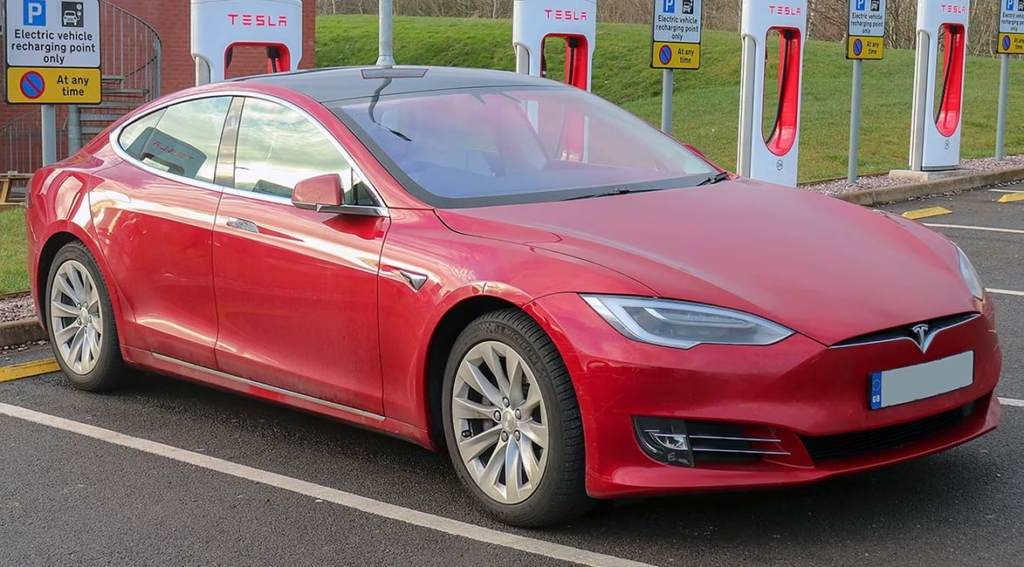The car data collected by the automobile is amazing. Unfortunately, some owners know about it.
Today, you should know about the car data collected by your car. All late-model sensors and cameras installed in automobiles can tell how you are driving. Tesla installed a camera (nonfunctional, they say) just above the rear-view mirror. They will tell us what it does in future.
According to consumer reports:
Tesla is not the only car manufacturer with internal-affected cameras in its vehicles. In GM’s 2018 Cadilac CT6 with Super Cruise, driver assistance is a steering-kom-mounted camera. It monitors the driver for signs of distraction. Subaru has planned to offer a similar system in his new forester.
,
This is a technology situation in vehicles today. Many new cars and trucks use many cameras (usually external faces). They have dozens of sensors that measure everything from road marks to GPS whether the driver’s hands are on the wheel.
Read also: International passenger is under the confidentiality siege of electronics
Automobile data collection may be mandatory in future
Vehicles are more and more equipped than cameras. Today, the sensors report the location of the car. Computer chips share information about speed, location and direction. The Transport Department began to study the rules that could control some of these new electronic systems. The dot may require future auto so that car-to-car data can be communicated to eliminate many crash causes. Only time will tell.
Who owns the data collected by your automobile?
The ownership of data used by car companies for repair is controversial. Travelers United was probably the first consumer advocacy group at Washington, DC, highlighting the problems of car companies refusing to share data with car companies. The consumer advocacy group supported a bill and was eventually passed in Massachusetts. This ensures that automobile owners control their automobile repair data, not car manufacturers.
Data that can be unlocked only for Ford, Chevrolet, or other dealers and their mechanics is now available for all mechanics. Computer information is required to properly diagnose problems with engine, emissions and brake problems.
According to Politico, cars collect more data than ever.
Cars are capable of collecting data on almost every aspect of a drive, from road conditions or not You have increased weight Last time you were sitting on the driver’s seat. If you connect your phone to the car’s Bluetooth system, it is also Able to know your contacts,
And while most of the data that collect cars are about the vehicle, such as engine temperature or tire pressure, more individual driver is a growing market for data, such as driver’s name and location, which is powered by industries such as insurance, marketing and car repair.
According to consumer reports, for more than two decades, “a variety of onboard sensors and underdeveloped computer control antigens help coordinate systems such as fuel injections, airbags and emissions.” Nearly a decade ago, Travelers United expanded their criminals from state MLAs to Washington, DC.
In 2015, the Congress responded to privacy concerns about EDR (endpoint detection and response) data – especially what your car data can be used against you in court – with a law that makes it clear that the data belongs to the owner of the car, not the auto company.
Today’s data collection is much more with the help of repair.
Computer equipment operates in the background during car operations. Security systems such as forward-cross-warning and automatic emergency braking depend on computers and data. Features such as adaptive cruise control also run through the sensor.
In the past, the sensor-across the data remained with the car. However, starting with GM’s onstar system, data was transmitted to external companies. Three-fourth of the 44 auto brands offer a wireless data connection in their 2018 model-year cars. This data collection allows corporate analysts to develop a detailed image of both car and driver – how it performs and what the drivers follow the law.
Apart from this, Travelers on United Blog: Learn the latest dot rules for better consumer protection
Google Maps and other GPS-competent devices are looking at an automobile location so that drivers can get guidelines. Soon, the driver will simply ask where the nearest McDonald’s or Burger King is located. Alexa will answer questions spoken about smart speaker traffic jams and nearest hotel or store. Nevertheless, other system drivers carry the upcoming fast-food outlets from Starbucks or Burger to coffee.
be careful. Many new cars have electronic features Celebration Automatically
Some cell phones automatically collect their data when plugged into the dashboard. Juice jacking can result in your cell phone address book download. Or, you can find new phone contacts in your address book. Fortunately, this data remains with phone or auto until download and physically removed.
Clinical ports on cars are often installed ad-ons that install that report about driving. Insurance companies provide exemption for their installation. Recorders collect acceleration. Breaking, and steering information that can determine the cause of an accident. Be careful when driving a friend’s car – an insurance company can be installed in a tracking device.
Telematic devices download engine data and send it to remote technicians. They then solve the engine problems from a distance. Automatic toll collectors track your trip.
Today, travelers work to fulfill new legal requirements for car data actively united. Although many car companies say that they constantly protect privacy, consumer advocates do not believe or trust an industry policing.
Auto companies should follow basic data collection rules
- Manufacturers should inform owners about data collection practices.
- Automobile owners should owe all the data collected by their vehicles.
- Get the owner permission to collect data.
- Make the data collected by auto easily accessible to the owners.
- Provide accurate privacy details of data usage.
Charlie Leoha is the chairman of Travelers United. He has been working in Washington, DC, with the stakeholders of the industry on Congress, Transport Department and travel issues over the last 14 years. He was the first consumer representative of the Advisory Committee for Aviation Conservative Safety appointed by the Transport Secretary from 2012 to 2018.



